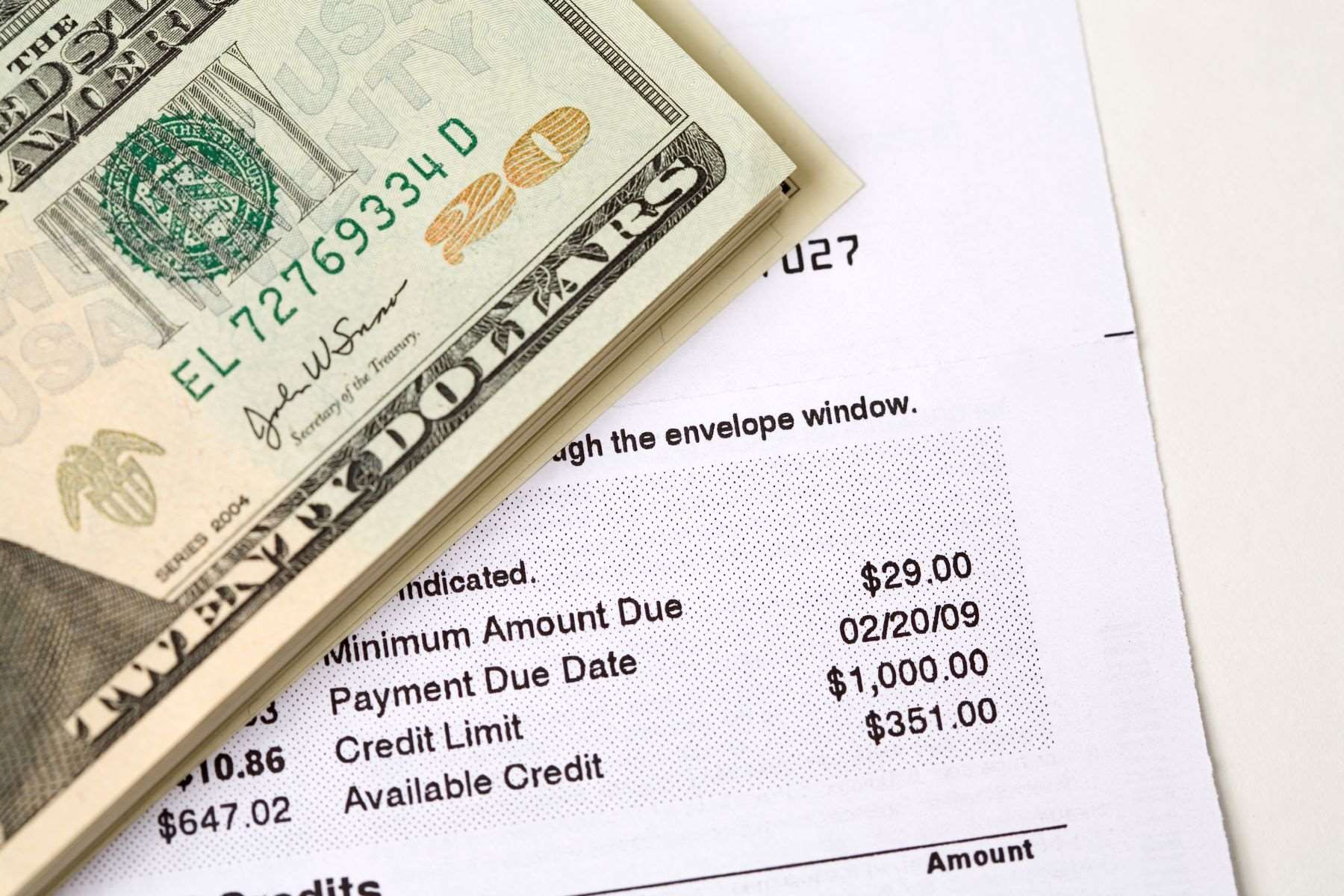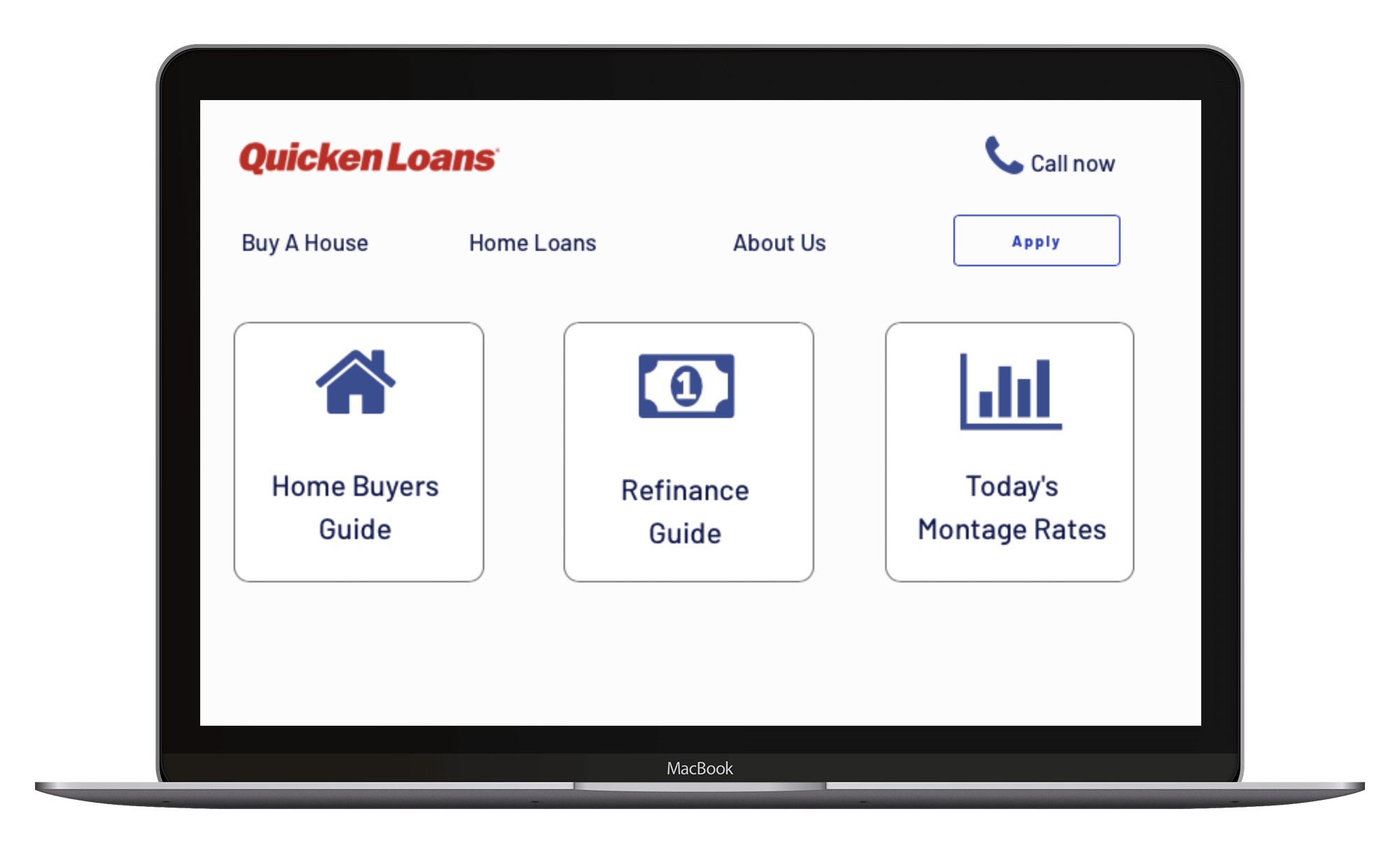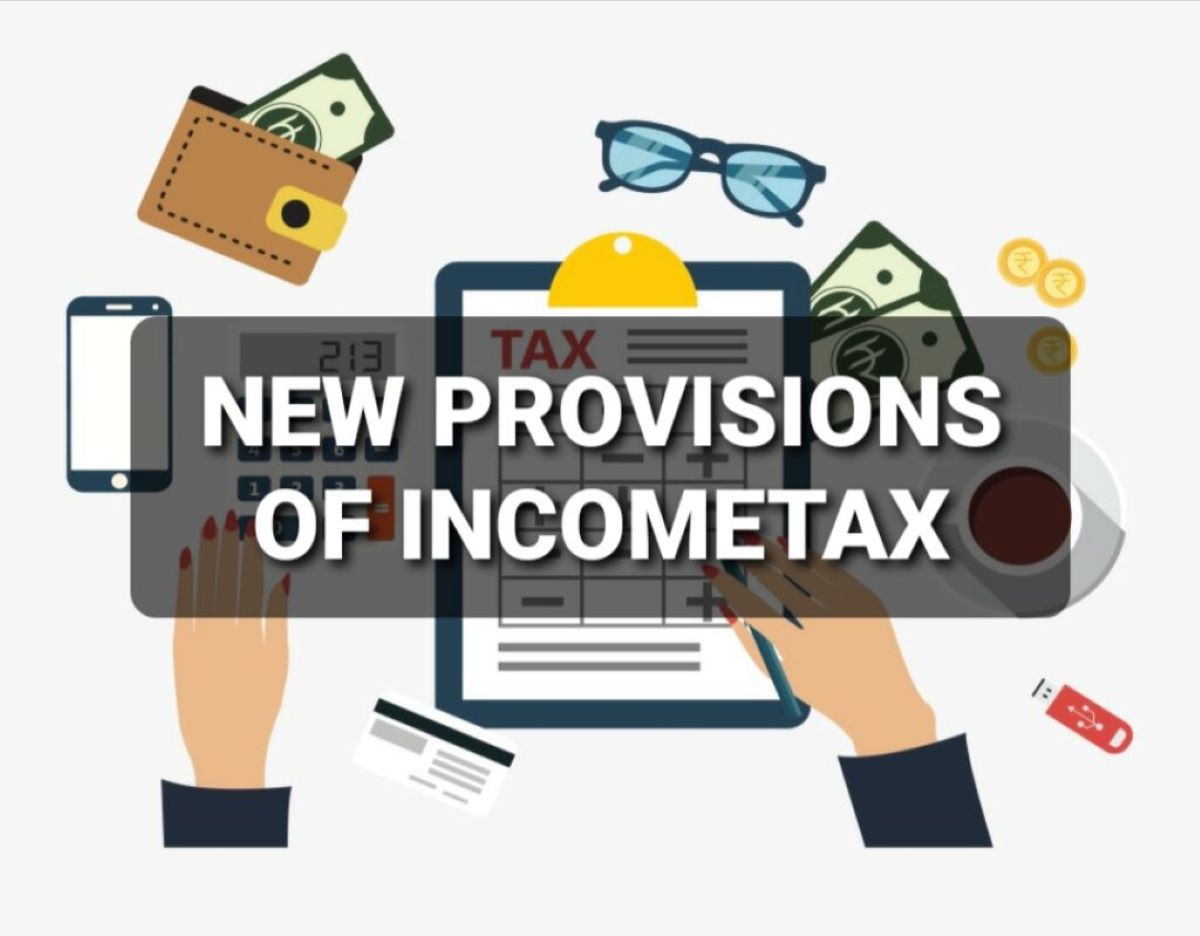

Finance
What Does A Credit Check Show A Landlord
Modified: January 10, 2024
Find out what a credit check reveals to a landlord regarding your financial background. Understand the implications it can have on your rental application and lease approval.
(Many of the links in this article redirect to a specific reviewed product. Your purchase of these products through affiliate links helps to generate commission for LiveWell, at no extra cost. Learn more)
Table of Contents
Introduction
When it comes to renting a property, landlords have the responsibility to ensure they choose reliable and trustworthy tenants. One crucial tool they utilize to assess a tenant’s reliability is a credit check. A credit check provides landlords with valuable insights into a potential tenant’s financial history, allowing them to make informed decisions about whether to proceed with a lease agreement.
A credit check involves evaluating an applicant’s credit report, which provides a comprehensive summary of their financial profile. It details their credit score, payment history, outstanding debts, public records, and credit inquiries made in the past. By reviewing this information, landlords can evaluate an applicant’s financial stability and ability to meet their rental obligations.
The significance of conducting a credit check cannot be overstated for landlords. It serves as a reliable indicator of whether a tenant is likely to pay rent on time, be responsible with their finances, and adhere to the terms of the lease agreement. By screening potential tenants through a credit check, landlords can mitigate the risks associated with renting to individuals with a poor financial track record.
Additionally, a credit check helps landlords identify any potential red flags or warning signs that may indicate financial instability. This information is crucial in avoiding the risk of renting to tenants who may default on rental payments or cause property damage.
However, it is essential to note that landlords must conduct credit checks ethically and follow legal protocols to protect applicants’ privacy rights. Understanding the specific information included in a credit check and how landlords can interpret it is vital to making informed decisions and maintaining compliance with the law.
In the following sections, we will explore in detail what information is typically included in a credit check, how landlords use this information when assessing applicants, and the legal considerations landlords must keep in mind when conducting credit checks.
Importance of Credit Checks for Landlords
Credit checks play a vital role in the tenant selection process for landlords. They provide valuable insight into a potential tenant’s financial history and behavior, allowing landlords to assess their reliability and trustworthiness. Here are some key reasons why credit checks are essential for landlords:
- Payment History: One of the most critical aspects of a credit check is evaluating the applicant’s payment history. This provides landlords with an understanding of their track record in meeting financial obligations. A history of consistently paying bills on time demonstrates responsibility and reliability, making them a desirable tenant.
- Credit Score: A credit check provides landlords with an applicant’s credit score, a three-digit number that reflects their overall creditworthiness. A higher credit score signifies that the individual has a history of responsible financial management. Landlords often establish a minimum credit score requirement to ensure they select tenants who are likely to meet their financial obligations.
- Outstanding Debts: Credit checks provide information about an applicant’s outstanding debts, including credit cards, loans, and other financial obligations. This allows landlords to assess the applicant’s financial health and determine if they have a manageable debt-to-income ratio. Excessive debts may indicate a higher risk of defaulting on rent payments.
- Public Records: Credit checks also reveal any public records associated with the applicant, such as bankruptcies, foreclosures, or court judgments. These records can provide insight into the applicant’s financial stability and their ability to fulfill rental obligations.
- Credit Inquiries: The credit report includes information about recent credit inquiries made by the applicant. Multiple inquiries within a short period may indicate a higher risk, as it suggests the individual is seeking credit from multiple sources, potentially indicating financial instability.
By conducting credit checks, landlords can make informed decisions about potential tenants, mitigating the risk of renting to individuals who may have a history of late payments, high debt levels, or financial instability. This helps ensure that the rental income is reliable and minimizes the likelihood of rent arrears or other financial issues.
Additionally, credit checks provide a level of protection for landlords by identifying any potential red flags or warning signs that may indicate a higher risk of defaulting on rent payments or causing property damage. This information allows landlords to assess the overall financial stability and responsibility of potential tenants before entering into a lease agreement.
In summary, credit checks are a crucial tool for landlords to evaluate the financial stability and reliability of potential tenants. They provide valuable insights into an applicant’s payment history, credit score, outstanding debts, public records, and credit inquiries. By conducting thorough credit checks, landlords can make informed decisions, minimize financial risks, and maintain a stable and responsible tenant base.
What is Included in a Credit Check?
A credit check provides landlords with a comprehensive overview of an applicant’s financial history and behavior. It includes several key components that help landlords assess the applicant’s creditworthiness and reliability as a tenant. Here are the main elements typically included in a credit check:
- Credit Score: A credit score is a three-digit number that reflects an individual’s creditworthiness. It is a significant factor in determining their ability to manage financial obligations. Credit scores generally range from 300 to 850, with higher scores indicating a more favorable credit profile. Landlords often establish a minimum credit score requirement to filter out applicants who may pose a higher risk.
- Payment History: This section highlights an applicant’s past payment behavior. It includes details of credit accounts, such as credit cards, loans, and mortgages, and whether the individual has consistently made payments on time. A positive payment history indicates financial responsibility and reliability.
- Outstanding Debts: This section reveals the applicant’s current outstanding debts, such as credit card balances, student loans, or auto loans. It provides a snapshot of the individual’s debt-to-income ratio, indicating their financial obligations relative to their income.
- Public Records: Public records include any legal actions or financial obligations that have become a matter of public record. This may include bankruptcies, foreclosures, tax liens, or civil judgments. Public records provide insights into an individual’s financial stability and may indicate potential risks.
- Credit Inquiries: This section lists all the inquiries made into the applicant’s credit history during a specified period. It includes both hard inquiries, which occur when a creditor reviews the credit report as part of a credit application, and soft inquiries, which occur when an individual or company checks their own credit. Numerous recent inquiries may suggest that the applicant is actively seeking credit and could be a sign of financial instability.
This information is compiled from various sources, such as credit bureaus, financial institutions, and public records. It provides landlords with a comprehensive picture of an applicant’s financial health and helps them determine the likelihood of the tenant meeting their rent obligations and being responsible with their finances.
Understanding what is included in a credit check empowers landlords to make informed decisions and evaluate applicants based on objective financial data. However, it is important for landlords to follow legal guidelines and obtain proper authorization from the applicant before accessing their credit report. This helps protect the privacy rights of the applicant while ensuring compliance with applicable regulations.
In the next sections, we will delve deeper into how landlords use the information obtained from a credit check and the legal considerations they must keep in mind to conduct credit checks in a fair and ethical manner.
Credit Score
A credit score is a numerical representation of an individual’s creditworthiness. It is a crucial component of a credit check and provides landlords with valuable insight into an applicant’s financial history and behavior. A credit score is calculated based on several factors, including payment history, outstanding debts, credit utilization, length of credit history, and new credit applications.
Credit scores typically range from 300 to 850, with a higher score indicating a more favorable credit profile. Landlords often establish a minimum credit score requirement to assess the financial responsibility and reliability of potential tenants.
A credit score serves as a summary of an applicant’s creditworthiness and helps landlords evaluate the likelihood of the applicant meeting their financial obligations, including rent payments. Here are some key points to understand about credit scores:
- Positive Impact of a High Credit Score: A high credit score demonstrates responsible financial habits and a history of making timely payments. It indicates that an individual is likely to fulfill their financial commitments, including rent payments. Landlords generally view a higher credit score as a positive indicator of a reliable tenant.
- Negative Impact of a Low Credit Score: A low credit score can raise concerns for landlords as it suggests a higher risk of financial delinquency. It may indicate a history of missed payments, defaulted accounts, or excessive debt. These factors can be red flags and may impact the landlord’s decision to rent to the applicant.
- Factors Influencing Credit Scores: Credit scores are influenced by various factors, but the most significant ones are payment history and outstanding debts. Making consistent, on-time payments and keeping debt levels manageable can positively impact a credit score. On the other hand, late payments, high credit card balances, or multiple delinquencies can lower the credit score.
- Monitoring and Improvement: Credit scores are not fixed and can change over time. Regularly monitoring one’s credit report and taking steps to improve a credit score can be beneficial for potential tenants. Landlords may view an upward trend in a credit score as a positive sign of financial improvement and responsibility.
- Consideration of Other Factors: While credit scores are an important aspect of the tenant screening process, they should not be the sole determining factor. Landlords should consider other factors, such as income, employment history, and rental references, to gain a holistic view of an applicant’s suitability.
It is crucial for landlords to understand the credit scoring system and its implications when considering applicants. However, it’s also important to remember that credit scores are just one aspect of evaluating an individual’s financial reliability. Assessing an applicant’s overall financial health, including their income stability and financial references, can provide a more well-rounded assessment of their ability to meet rental obligations.
In the next sections, we will explore other components of a credit check, including payment history, outstanding debts, public records, and credit inquiries, and how landlords use this information to make informed decisions about potential tenants.
Payment History
Payment history is a significant factor in a credit check as it provides landlords with valuable insights into an applicant’s past financial behavior and their ability to meet their payment obligations. It is an essential component in assessing an individual’s creditworthiness and reliability as a tenant.
A thorough examination of an applicant’s payment history reveals how they have managed their past financial responsibilities, including loans, credit cards, and other forms of credit. Here are key points to understand about payment history:
- Timely Payments: A positive payment history reflects a consistent record of making payments on time. Landlords consider this as an important indicator of an applicant’s financial responsibility. Regular, on-time payments demonstrate reliability and a commitment to meeting financial obligations.
- Missed or Late Payments: On the other hand, a history of missed or late payments raises concerns for landlords. This pattern suggests potential financial instability or a lack of responsibility in meeting financial commitments. Landlords generally prefer tenants who have a track record of making payments in a timely manner.
- Negative Impact on Credit Scores: Late payments or delinquencies can have a significant impact on an applicant’s credit score. This can make it harder for individuals with a history of poor payment behavior to secure rental agreements, as landlords may perceive them as higher risks.
- Patterns of Payment Behavior: Analyzing the applicant’s payment history can reveal patterns in their financial habits. Consistently late or missed payments, or a high number of delinquencies, may indicate a chronic issue with meeting financial obligations. Conversely, a consistent history of on-time payments demonstrates financial responsibility and reliability.
- Exceptions and Context: While a positive payment history is generally desirable, landlords should also consider any exceptional circumstances or changes in an applicant’s financial situation. In some cases, life events such as temporary job loss, medical emergencies, or unexpected expenses may have temporarily impacted an individual’s payment history. In such cases, it is important to evaluate the overall financial picture and consider explanations provided by the applicant.
Landlords carefully review an applicant’s payment history as it serves as a strong indicator of their ability to meet rental payment obligations. However, it is important to assess payment history in conjunction with other factors, such as income stability, employment history, and rental references, to form a comprehensive evaluation of the applicant’s overall financial reliability. A detailed understanding of an applicant’s payment history helps landlords make informed decisions when selecting tenants.
In the next sections, we will explore other crucial components of a credit check, including outstanding debts, public records, credit inquiries, and delve into how landlords use this information to make informed decisions when evaluating potential tenants.
Outstanding Debts
One essential component of a credit check is assessing an applicant’s outstanding debts. This information provides valuable insights into their financial health and their ability to manage their financial obligations. Understanding an applicant’s outstanding debts allows landlords to assess their debt-to-income ratio and evaluate their ability to meet rental payments on time.
Here are key points to consider when reviewing an applicant’s outstanding debts during a credit check:
- Debt-to-Income Ratio: An applicant’s debt-to-income ratio is a crucial consideration for landlords. It compares the amount of debt an individual has to their monthly income. A high debt-to-income ratio suggests a heavier burden of financial obligations, which may make it more challenging for the applicant to afford rental payments and other expenses. Landlords typically prefer tenants with a manageable debt-to-income ratio.
- Type of Debt: Credit checks provide insights into the types of debts an applicant carries, such as credit card balances, student loans, personal loans, or car loans. Understanding the nature and amount of these debts helps landlords evaluate whether the applicant has taken on excessive or risky financial obligations that may impact their ability to meet rent payments.
- Payment Behavior on Debts: Examining an applicant’s payment behavior on their outstanding debts provides valuable information about their financial responsibility. Consistent, on-time payments on debts suggest reliability and a commitment to meeting financial obligations. On the other hand, a history of missed payments or delinquencies raises concerns about the applicant’s ability to manage their finances effectively.
- Impact on Credit Score: Outstanding debts and the applicant’s payment behavior on those debts have a direct impact on their credit score. A high amount of debt relative to available credit limits and a history of late or missed payments can significantly lower an individual’s credit score. Landlords consider the credit score as an important gauge of an applicant’s financial reliability.
- Sources of Income: Understanding an applicant’s outstanding debts can also provide insights into their income sources and stability. If the applicant’s debts far exceed their income, it may indicate financial stress and potential challenges in meeting rental payments.
By examining an applicant’s outstanding debts, landlords can assess their ability to manage multiple financial obligations and determine if they have a sustainable financial position. This evaluation helps landlords make informed decisions about the applicant’s suitability as tenants and reduces the risk of tenants defaulting on rental payments.
It is important for landlords to remember that outstanding debts should be evaluated alongside other criteria, such as income stability, employment history, and rental references. A holistic assessment of an applicant’s financial situation is essential to make a well-informed decision when selecting tenants.
In the next sections, we will explore other critical components of a credit check, such as public records and credit inquiries, and discuss how landlords use this information to assess potential tenants.
Public Records
As part of a comprehensive credit check, landlords have access to public records that can provide insights into an applicant’s financial stability and integrity. Public records are legal documents that are available to the general public and can include information about an individual’s financial activities and obligations.
Here are important points to consider when reviewing public records during a credit check:
- Bankruptcies: Public records may reveal if an applicant has filed for bankruptcy in the past. Bankruptcy can significantly impact an individual’s creditworthiness and indicate financial struggles or mismanagement. This information helps landlords evaluate the applicant’s financial stability and their ability to meet rental obligations.
- Foreclosures and Repossessions: Public records can also provide details about any foreclosure or repossession proceedings an applicant has experienced. These records indicate that the individual may have had difficulty repaying their mortgage or car loan, potentially raising concerns about their ability to meet rent payments.
- Tax Liens: Tax liens are legal claims made by the government on an individual’s property for unpaid taxes. Public records may reveal if an applicant has any outstanding tax liens. Unresolved tax liens can indicate serious financial issues and may raise concerns about the applicant’s ability to meet future financial obligations, including rent.
- Civil Judgments: Public records can include information about civil judgments against an applicant. These judgments result from lawsuits where a court has ordered the individual to pay a specified amount of money to a creditor. The presence of civil judgments may indicate a history of financial irresponsibility or legal disputes that could impact the applicant’s ability to fulfill rental obligations.
- Legal Compliance: Reviewing an applicant’s public records helps landlords assess if the individual has a history of adhering to legal and financial obligations. It provides insights into the applicant’s integrity and financial responsibility, helping landlords make informed decisions in selecting tenants.
It is important for landlords to exercise caution when considering public records during the tenant screening process. These records should be reviewed contextually, taking into account the applicant’s overall financial profile and any explanations they provide for the presence of public records. Each case should be evaluated on an individual basis, considering the circumstances surrounding the public records.
By examining public records, landlords gain valuable insights into an applicant’s financial stability, legal compliance, and potential risks associated with renting to them. This information allows landlords to make educated decisions and ensures the selection of tenants who are likely to meet their financial obligations. In the following sections, we will explore credit inquiries and how landlords can effectively utilize credit check information in the tenant selection process.
Credit Inquiries
Credit inquiries are an important component of a credit check as they provide information about an applicant’s recent credit-seeking activities. Credit inquiries are generated when an individual or institution requests access to an applicant’s credit report. These inquiries are classified into two types: hard inquiries and soft inquiries.
Here are key points to understand about credit inquiries during a credit check:
- Hard Inquiries: Hard inquiries occur when a potential creditor, such as a landlord or lender, reviews an applicant’s credit report as part of a credit application process. Hard inquiries remain on the credit report for up to two years and are visible to other potential creditors. Too many hard inquiries within a short period can have a negative impact on an applicant’s credit score, as it suggests an increased risk of seeking credit from multiple sources.
- Soft Inquiries: Soft inquiries occur when an individual or institution checks their own credit report or when a potential employer or landlord requests a credit check for non-lending purposes. Soft inquiries do not affect an applicant’s credit score and are not visible to other potential creditors. They are typically used for informational purposes and do not pose the same level of risk as hard inquiries.
- Importance of Credit Inquiries: Credit inquiries provide a snapshot of an applicant’s recent credit-seeking activities. Multiple recent hard inquiries may indicate financial instability or a higher risk of defaulting on future financial obligations. Soft inquiries, on the other hand, offer insights into an applicant’s personal credit monitoring habits or their interaction with non-lending entities.
- Consideration of Credit Inquiries: When assessing credit inquiries, landlords consider the timing and frequency of the inquiries, along with other factors such as the applicant’s credit score and payment history. It is important to note that some inquiries may be unrelated to financial risk, such as inquiries related to insurance or utilities.
- Monitoring Credit Inquiries: Regular monitoring of credit inquiries helps individuals be aware of any unauthorized credit checks and potential identity theft. It allows individuals to take appropriate actions to protect their credit and financial information.
Landlords review an applicant’s credit inquiries to gain insights into their recent credit-seeking activities and assess the potential risks associated with their financial behavior. By considering credit inquiries along with other aspects of the credit report, landlords can make better-informed decisions when selecting tenants.
It is important for landlords to exercise discretion when evaluating credit inquiries. Not all inquiries carry the same level of risk, and a well-rounded assessment should consider the overall financial profile and the context behind the inquiries. Additionally, it is worth noting that credit inquiries have a lesser impact on an applicant’s credit score compared to other factors like payment history and outstanding debts.
As we conclude our exploration of the components of a credit check, we will now delve into how landlords utilize the information obtained from credit checks and the legal considerations they must keep in mind to conduct credit checks ethically and compliantly.
How Landlords Use Credit Check Information
Credit check information provides landlords with valuable insights into a potential tenant’s financial history and behavior. This information helps landlords make informed decisions when selecting tenants and mitigating the risks associated with renting their property. Here are key ways landlords utilize credit check information:
- Evaluating Financial Responsibility: Landlords assess an applicant’s credit score, payment history, outstanding debts, and other credit check components to evaluate their financial responsibility. A positive credit history, including timely payments and low outstanding debts, is often indicative of an applicant’s ability to manage their finances responsibly and meet rental payment obligations.
- Mitigating Financial Risks: By analyzing credit check information, landlords can identify potential red flags or warning signs that may indicate financial instability. This includes identifying applicants with a history of late payments, high debt levels, or public records such as bankruptcies or foreclosures. Avoiding tenants with a higher risk of rent arrears or property damage helps landlords protect their rental income and maintain the value and stability of their property.
- Comparing Applicants: Landlords often receive multiple applications for their rental property. Utilizing credit check information allows them to compare applicants and select the most reliable and qualified tenant. Landlords can evaluate several aspects, such as credit scores, payment histories, and debt levels, among applicants to determine who best meets their requirements and poses the least financial risk.
- Negotiating Lease Terms: Credit check information can also inform landlords when negotiating lease terms with potential tenants. If an applicant has a lower credit score or potential financial risks, landlords may require a higher security deposit or additional lease terms to mitigate the perceived risk. This helps landlords protect their interests and minimize potential financial loss.
- Verifying Applicant Information: Credit check information can help landlords verify the accuracy of the information provided by the applicant. It allows them to confirm the applicant’s identity, employment, and financial stability, ensuring that the applicant has provided truthful and reliable information during the application process.
- Maintaining Legal Compliance: Landlords must follow legal protocols and adhere to fair housing laws when utilizing credit check information. They must obtain proper authorization from applicants and handle the information securely. Additionally, landlords must treat all applicants equally and avoid discrimination based on protected characteristics such as race, gender, or disability.
By utilizing credit check information effectively, landlords can make well-informed decisions and select tenants who demonstrate financial responsibility, reliability, and the ability to meet their rental obligations. It helps safeguard the landlord’s financial interests, maintain the value of their property, and foster a positive and stable rental environment.
As we conclude our discussion on how landlords use credit check information, it is important to emphasize the significance of conducting credit checks in a fair, ethical, and legal manner. Understanding the legal considerations and obligations associated with tenant screening ensures compliance while protecting both the landlord and the rights of applicants.
In the concluding section, we will summarize the key points discussed and underscore the importance of conducting credit checks responsibly.
Legal Considerations for Landlords Performing Credit Checks
When landlords perform credit checks on potential tenants, they must adhere to legal guidelines and protect applicants’ privacy rights. Understanding these legal considerations is crucial to conduct credit checks responsibly and avoid potential legal issues. Here are key legal considerations for landlords:
- Obtaining Authorization: Before conducting a credit check, landlords must obtain written authorization from the applicant. This authorization should be separate from the rental application and clearly outline the purpose and scope of the credit check. Landlords must also inform applicants of their rights under applicable privacy laws.
- Fair Housing Laws: Landlords must ensure that they comply with fair housing laws, which prohibit discrimination based on protected characteristics such as race, color, religion, sex, national origin, familial status, or disability. When utilizing credit check information, it is important to apply the same standards to all applicants and make decisions based on objective financial criteria rather than personal characteristics.
- Security and Confidentiality: Landlords should handle credit check information securely and maintain the confidentiality of applicants’ personal and financial information. This includes storing and disposing of credit reports and related documents in a secure manner to prevent unauthorized access or identity theft.
- Applicant Notification: Landlords must promptly inform applicants if adverse action, such as rejection of the rental application, is based on the information obtained from the credit check. This notification should include the specific reason for the adverse action and provide the contact information of the credit reporting agency that provided the credit report.
- Dispute Resolution: If an applicant disputes the accuracy of the information in the credit report, landlords should provide them with the necessary information to contact the credit reporting agency to rectify any errors. Applicants have the right to dispute and correct inaccurate information in their credit report under the Fair Credit Reporting Act.
- State and Local Regulations: Landlords must also be aware of any specific state or local regulations regarding tenant screening and credit checks. Some jurisdictions may have additional requirements or restrictions on the use of credit check information, so it is important to research and comply with these regulations.
Ensuring compliance with legal considerations when performing credit checks not only protects landlords from potential legal consequences but also upholds applicants’ rights to privacy and fair treatment. Landlords should maintain transparency, fairness, and respect throughout the entire tenant screening process.
It is recommended that landlords seek legal advice or consult relevant housing authorities to ensure they are fully informed about the legal requirements and obligations associated with conducting credit checks in their specific jurisdiction.
In the final section, we will summarize the key points discussed and underscore the significance of responsible credit check practices for landlords.
Conclusion
Credit checks are a valuable tool for landlords to assess the financial history and behavior of prospective tenants. By examining an applicant’s credit score, payment history, outstanding debts, public records, and credit inquiries, landlords can make informed decisions when selecting tenants and mitigating potential financial risks.
A credit check allows landlords to evaluate an applicant’s financial responsibility, reliability, and ability to meet rental obligations. Positive indicators, such as a good credit score, on-time payments, and manageable debt levels, provide confidence in an applicant’s financial stability. On the other hand, red flags such as late payments, high debt burdens, or public records can raise concerns about an applicant’s ability to fulfill rental obligations.
Landlords must adhere to legal considerations when conducting credit checks, including obtaining applicant authorization, complying with fair housing laws, protecting applicant privacy, and providing necessary notifications and dispute resolution options. By conducting credit checks responsibly and ethically, landlords can maintain compliance while making well-informed decisions during the tenant selection process.
Effective utilization of credit check information enables landlords to compare applicants, negotiate lease terms, verify applicant information, and mitigate financial risks. It helps landlords maintain stable and reliable tenant bases, protecting their rental income and preserving the value of their properties.
It is important for landlords to remember that credit checks should be used as one component of the tenant screening process, alongside other factors such as income stability, rental references, and employment history. A comprehensive evaluation ensures a well-rounded assessment of an applicant’s financial reliability.
In conclusion, credit checks provide valuable insights into an applicant’s financial history and behavior, enabling landlords to make informed decisions and select reliable tenants. By conducting credit checks responsibly and complying with legal obligations, landlords can manage financial risks, protect their properties, and establish a mutually beneficial relationship with tenants based on trust and financial stability.














